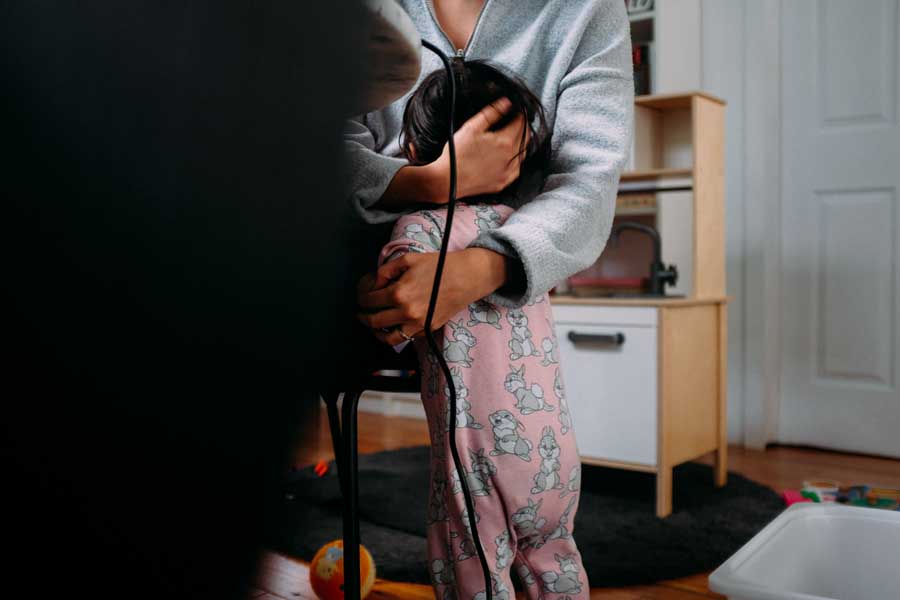Parenting is a team effort. There is an old African proverb that says ‘it takes a village to raise a child’. While a child is influenced and shaped by the entire society, there are no two individuals who play a more pivotal role in this than the parents.
Both mom and dad play important and different roles in parenting. Let us not confuse “parenting” with responsibilities. The “tasks” of raising a child can be divided equally and interchangeably between both parents. But parenting is much beyond these tasks. It involves promoting a child’s well-being, by supporting his/her physical, intellectual, emotional, and social development. Children need both a mother and a father, and it is not just about family solidarity. Kids need both the nurturing style that most mothers bring to the family as well as a more challenging and real-world-based style that seems to be innate to most fathers.
So how do the parenting styles of fathers and mothers differ, and how can we blend them in a family to benefit the children as they grow up and prepare for life? These differing styles can be overgeneralized based on gender. In some families, mothers can be more demanding and fathers more nurturing. But the essential key is balancing the different parenting styles and getting the best impact from the blend.
A Mother’s Style
Mothers tend to find themselves generally in a more nurturing role. They seem to have an innate ability to be discerning with their children. For example, they are often more tuned into a baby’s specific needs than a father is. There is simply an emotional connection between mother and child that a father simply doesn’t get.
In addition, mothers tend to verbalize a lot more with their children. Part of that tendency is that women generally are more verbal than men. That style tends to manifest itself in parenting where the Mom offers more words of affirmation, tends to express her expectations more clearly and to “talk out” issues involving discipline.
Mothers generally put their children’s needs ahead of their own. She seems to come “pre-wired” to self-sacrifice; perhaps that starts with a pregnancy where a Mom’s full-time physical care role is so dramatic.
A Father’s Style
Fathers are generally more focused on having high expectations of their children and encouraging them to deliver on those consistently. They tend to focus less on making a child feel good or secure and more on challenging them and helping them prepare to cope with the real world. The emotional connection that a mother has is not often replicated in fathers. For example, my friend who has twin sons had a very hard time telling them apart as babies; their mother had no trouble at all.
Fathers, while they do not verbalize as much as mothers do, tend to be more direct and use fewer words. They may seem to be “too tough” to the moms, but their toughness is rooted in helping kids be prepared for real life. From a disciplinary standpoint, they tend to impose consequences more quickly and then talk later.
Dads also tend to be less self-sacrificing, at least in an obvious way. Their sacrifices tend to be more focused on the family as a whole and less on individual children.
Different Roles of a Mother in Parenting
A mother has a significant impact on a child’s overall growth and well-being. Following are the six most important roles played by a mother in her child’s life:
1. The Mother is the First Teacher of a Child
The Mother is the first teacher of a child. A child is the greatest blessing of God for the parents. But along with this angel, comes the responsibility of nurturing and growing your child. This is not an easy job and requires a great amount of patience and perseverance.
Children have highly impressionable minds, and they watch and copy just about everything. Raising your happy, positive children is a shared responsibility of both the parents, but as we all know, a child ends up being with the mother more often and most part of the day owing to needs that only a mother can fulfill.
Since a mother spends the maximum time with her baby, therefore the mother is the first teacher of her child, and the kid believes in her and also follows her completely.
2. Mother as a Nurturer
No offense to the Dads out there – but mommies are slightly more important to the child’s nurturing than daddies. Mothers have an instinctive ability to be sensitive to their children. Mothers read the signs better – right from the time their baby is born.
And there is a strong emotional connection between a mother and a child that a dad cannot simply emulate. As mothers, you need to keep your eyes open and observe the children for any emotional, physical, or behavioral changes. This way, a mother can recognize any problem early on, without waiting for it to turn into a “situation.”
3. Mother as a Secure Anchor
A baby starts recognizing the mother’s scent and face merely days after birth. From that moment on, the mother’s presence, her touch, her voice is all a secure base for the child. “I want my mommy” is often the first reaction to anything that upsets the child.
This is why it is important for the mother to work on strengthening this trusted bond between herself and her child. Unreasonable anger and impatience, spanking, and public shaming are some of the ways you can lose this trust easily.
As a mother is the first teacher, you have to make your child feel safe and secure – this is often a taken-for-granted role, but is nevertheless important as insecurity can lead to many emotional and psychological problems in your child.
4. Mother as a Confidant
Just as easy as a mother can read her children from their expressions and body language, she can also easily talk to them about what they are going through. Mommies are more verbal than daddies, because, well, women generally talk more than men.
They are also better listeners, and children find it easy to open up to their mommies when they are troubled. Even if there are no problems brewing, mothers are always interested to know more about their children. They ask more questions and are better at getting answers.
As a mother, you need to keep this communication channel open and live until they become adults. As the child grows, they tend to confide more in their friends than their parents. This is why you need to be their friend, have daily interactions, and share a good laugh – not just start talking when there is trouble.
As the mother, as the first teacher, can teach things to her baby, she spends more time with them.
5. Mother as an Emotional Anchor
Women and their emotions are often the butts of men’s jokes. But it is her emotional facet that helps her connect deeply with her children. A mother can easily hug a child or cry with him/her in public – something daddies tend to avoid.
Mothers can talk about their feelings with the children, and hence they are better equipped to teach the children how to deal with emotions. A mother is the one who understands the needs and moods of her child. She knows what her child wants, even when the child has not spoken much.
This gives emotional security to the child. This, combined with her role as a nurturer, helps a mother improve her child’s emotional intelligence and sensitivity to others. That’s why the mother is the first teacher for each and every baby in their life.
6. The Mother is the First Teacher as an Educator
A mother is the original pre-school! Mommies are more likely to engage their children in various learning activities – from singing a rhyme out loud to solving a puzzle – than the daddies. This is because, as we said earlier, mommies are better at communication.
They are also good at being playful, and more importantly, they are patient with their child’s pace. They are also very good at teaching children soft skills. As a mother, you need to interact with your child as much as you can and help them learn and be organized when they are more independent.
7. Mother as a Disciplinarian
A mother has to maintain a balance between ‘being strict’ and ‘pampering the child.’ She has to inculcate a sense of responsibility in the child. She is the one who makes them learn the first lessons of life.
The mother is the one who makes her child understand what is being said and they learn to follow her instructions smoothly. She gives them toilet training and teaches them how to express their needs. She makes them mentally strong to face the outer world when they first leave home to join the school.
Different Roles of a Father in Parenting
Read on to understand the different roles a father needs to play to effectively raise a child.
1. Father as a Playmate
While mothers are better at singing rhymes and dancing silly, dads make excellent playmates, especially for rougher and physical games. From horseplay as a toddler to kicking around a ball as a preschooler to competing in video games as an adolescent – a child always turns to his/her father for company.
This is where the budding seeds of friendship are first sown. As a father, you should never be too busy playing with your child. Since most fathers are not great with words and long chats, playing with your child gives you an excellent medium of communication.
2. Father as a Coach or a Teacher
Nope, we are not talking about academics here. As a father, you are your child’s first life coach. No matter how old they become, they always remember that you taught them how to cycle, that they played their first-ever cricket/football game with you, that you always challenged them to be better, that you always taught them to get up after a fall.
Unlike mothers who are softer with their kids, fathers tend to have high expectations from their children. You push them to excel and this is important because the “toughness” you show prepares them for real life. If tackled wisely, this leads to a motivated child who is keen on delivering your expectations.
3. Father as a Protector
We are not being sexist. Or maybe we are a little bit. Men are generally better at identifying security concerns and protecting the child and family from any physical danger. They are bigger and more strongly built than women, making the child perceive them as a protector.
As a father, you need to live up to this reputation, which, thankfully, comes naturally to you. But it is also important to draw a line and help your child learn to protect themselves.
4. Father as a Companion
Someone rightly said that children spell”love” as”t-i-m-e”. A father is not always available, and that makes his time very precious in the minds of the child. All special occasions – birthdays, parents-teachers meetings, football games – are made extra-special if the father can be a part of it.
This is because a child shares a different emotional equation with their dads. Mom is a mom. But dad can be a lot more than dad. You can be his companion, his partner in crime, his co-conspirator, and his brother-in-arms. Spend time with your child so that you can build and strengthen a friendly bond.
5. Father as a Role Model
A daughter looks up to her dad as the first perfect man in her life. She expects other men to treat her with the same respect as her dad does. She even looks for the same characteristics in a husband.
A son grows up to become his father’s replica. If he sees his father respecting his mother and sisters – he will grow up to respect women. If he sees his father being kind – he will grow up to become a kind and genuine person. He will replicate from his father priorities in life, humility, and honesty.
6. Father as a Provider
Generically speaking, a man assumes the role of a provider for his family when he gets married. In fact, many traditional vows across different cultures talk about a man being a provider for his family.
Though technically, this may not be valid for everyone, and we are definitely not favoring sexism here, yet it is a father who needs to address the spiritual, emotional, and financial needs of his family.
You play a pivotal role in making your child more independent. The skills you teach them to help them in becoming strong, respectful, and self-sufficient. And always remember, a father’s role is never”done”. Even after they become adults and move out of your house, they will still turn to you for advice (and at times money!).
Combining Both Parenting Styles in Families
It is clear from the research that fathers have a critical role to play in the lives of their children. And fathers readily acknowledge that mothers are essential as well. So the key question is how to blend the different roles and styles into a cohesive approach to effective parenting.
There are a number of negatives that come into a family if these parenting styles aren’t blended effectively.
- Children can feel confused or conflicted with different expectations from Mom and Dad
- When parents seem so different, children can be drawn more to one parent or the other because of their affinity for the specific parenting style
- As they mature, the conflicts can result in alienation or depression
Making It All Work
Finding the appropriate balance between parenting styles is the key to success. Balancing and blending require careful thought and action.
- Negotiate. Parents with different approaches need to find a comfortable place where both can be okay with the approach. Lots of communication, talking about the differences and then cooperating and compromising will help find that appropriate blend.
- Support each other in parenting. Children can learn quickly how to pit one parent against the other and drive a wedge between Mom and Dad. Try not to disagree on parenting in front of the kids. If one of you has to let the other parent take the lead in a given situation, let that happen and then talk about it later.
- Defer to the stricter parent. At times when parents have different approaches, decide ahead of time to allow the more restrictive parent to prevail. Kids will try to manipulate you and go to the more conciliatory parent first, but potentially to the detriment of good parenting. Staying with the parent who wants more structure and rules will eliminate the future manipulation.
- Get together on the key values. When both parents want to teach and reinforce the same values, the different parenting styles work best. So thoughtfully come up with a family mission statement including key values your family espouses. Then, as you parent together, you can be united on the things that matter and identify the best way to get the values embraced in any given situation. The “greater good” will help you find the right approach.
- Get help if it is not working. If you find yourself in regular conflict over parenting styles, you might consider talking together with a family therapist, a clergy member, or a trusted friend who seems to be a successful parent. You might also consider taking a parenting class offered by your local school district or parenting program to help you better address the specific concerns of your family.
Working together to blend your parenting styles takes a lot of work and specific focus. But the positive impact on your children as you try to be effective co-parents can be truly amazing and worth all the work. Put your children first, recognize that different styles are not bad, just different, and communicate together as parents and you will find this whole parenting business a much more rewarding process.


